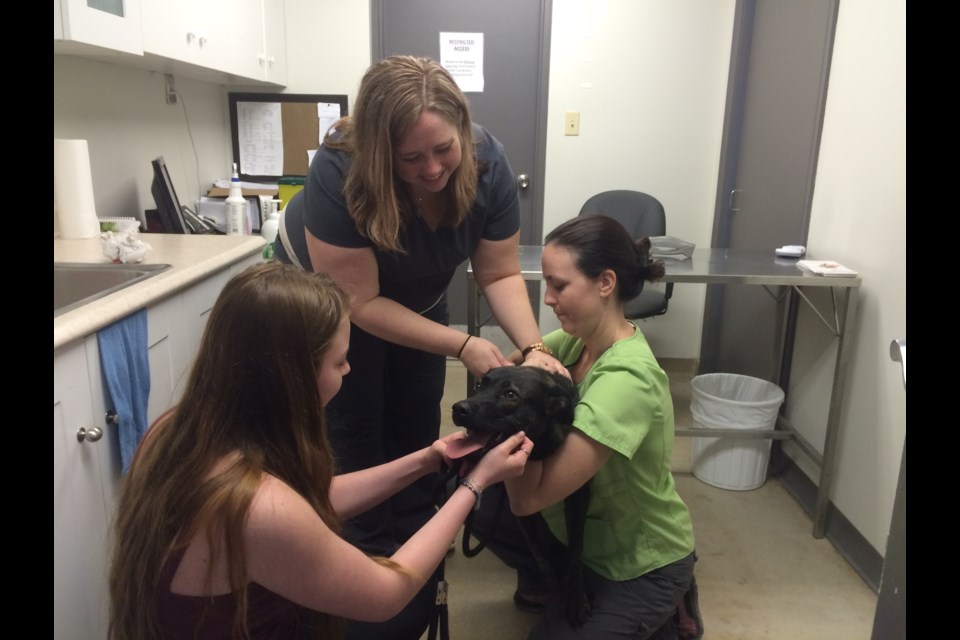Colleen McCarthy brought three of her dogs to Saturday's Microchip Day at the North Bay and District Humane Society. She said getting them microchipped gives her peace of mind.
"I think it's better this way because if my dogs go missing I'll have a better chance of getting them back," she said. "I really like this. I had another one done two years ago. She was perfectly good. She didn't even feel it."
Dr. Nicole Holden compares the size of a microchip to a grain of rice. The veterinarian says it's inserted by needle into the scruffy area between the shoulder blades, just beneath the skin. She said most of the animals don't have any reaction, others may let out a small noise, but it's a quick procedure.
"If they ever escape and are picked up, they can be brought into a vet clinic or shelter and they can be scanned." Dr. Holden said the microchip will provide the owner's information. "That scan shows a number, and that number is linked to the owner's name, address, and phone number, so their pet can be returned quicker."
Keith Russell brought his nine-month-old boxer-lab mix to be microchipped because of her Houdini-like disappearing acts.
"We've had issues with her getting out and running. And she is a jumper, she's probably capable of jumping the fence in the backyard. So we just want to make sure that if she does manage to get away that we can get her back easily," said Russell.
The microchip is permanent
Daryl Vaillancourt, Executive Director for the North Bay and District Humane Society, explained that even if the information isn't up to date, it at least provides a starting point.
"Most dogs and cats that we pick up have zero information, no tag, no collar, nothing," said Vaillancourt. "The microchip is the absolute best way to identify an animal."
Vaillancourt said if the information hasn't been updated because an owner has moved, changed phone numbers or if there happens to be a new owner, a call to the microchip company or the humane society can get the information updated at no cost.
"When an animal is microchipped, we've got them back to the owners every single time," said Vaillancourt. "I remember one time, we had a bit of a hard time because the information wasn't updated, but at least we had a place to start, and then we followed the crumbs to the actual owner."
The Humane Society holds one Microchip Day a year, but due to its popularity, the Society is considering adding another day in the fall. An average of 200 dogs and cats go through the one-day clinic.



